UGA SREL Graduate Student Archive
UGA SREL Graduate Student Archive
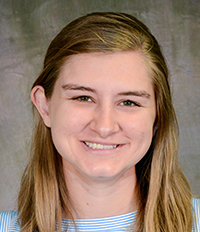
Jennifer McDaniel
Hometown: Waynesboro, Georgia
Degree objective:
Ph.D. in Forest Biology
Other degrees:
Bachelor of Science in Forest Resources; MS in Forestry
Why did you choose UGA and SREL?
I was attracted to pursuing a Ph.D at UGA because of the high quality of research opportunities, particularly since Warnell is a leader in forestry research.
What research projects are you working on?
I research the effects of fire on tree mortality and physiology. Specifically, I’m interested in quantifying potential damage to tree crowns on both stand and individual tree scales and then linking that damage to fire energy. I’m currently working with hyperspectral and multispectral data, which capture spectral information from the visible light range and beyond, and LiDAR data, which includes detailed 3D information on vegetation structure, which I collected pre-and post-fire as part of a long-term prescribed fire experiment on the Osceola National Forest in Florida.
What’s your favorite thing about SREL?
I’m always impressed by the caliber of scientists, both young and seasoned. Everyone has their own interests that are often in very different areas of ecology, but they are all united by a sense of discovery and innovation. Here at SREL we are in a unique landscape with access to a variety of forest types, leading to great research opportunities.
What’s your favorite memory ?
Each spring, SREL, U.S. Forest Service Savannah River, U.S. Forest Service Southern Research Station, and other partners host UGA’s Wildland Fire course. I participated in the course a few years ago and experienced firsthand practical fire application. It also gave me an opportunity to witness a high level of cooperation between practitioners, researchers, and students, which reminded me of the importance of my research and engaging with partners in fire management.
What is an interesting fact about you?
I’m a big fan of native plants, and terrestrial orchids and Sarracenia in particular. Most of my family’s weekend trips around the Southeast are centered on finding plants that are new to us. When my sister and I were growing up, we almost always spent time identifying native trees while hiking or driving through new areas.
What are your plans after graduation?
I plan to pursue a faculty position at a research university. I’ve been fortunate so far to have mentors and colleagues who have advocated for me and encouraged me as a young researcher, and I look forward to doing the same for others interested in natural resources.
What advice would you give to an aspiring graduate student who is interested in ecology?
Give yourself that extra bit of grace and forgiveness. While not everything is likely to work out perfectly, natural resources is an incredible field that rewards curiosity and perseverance.
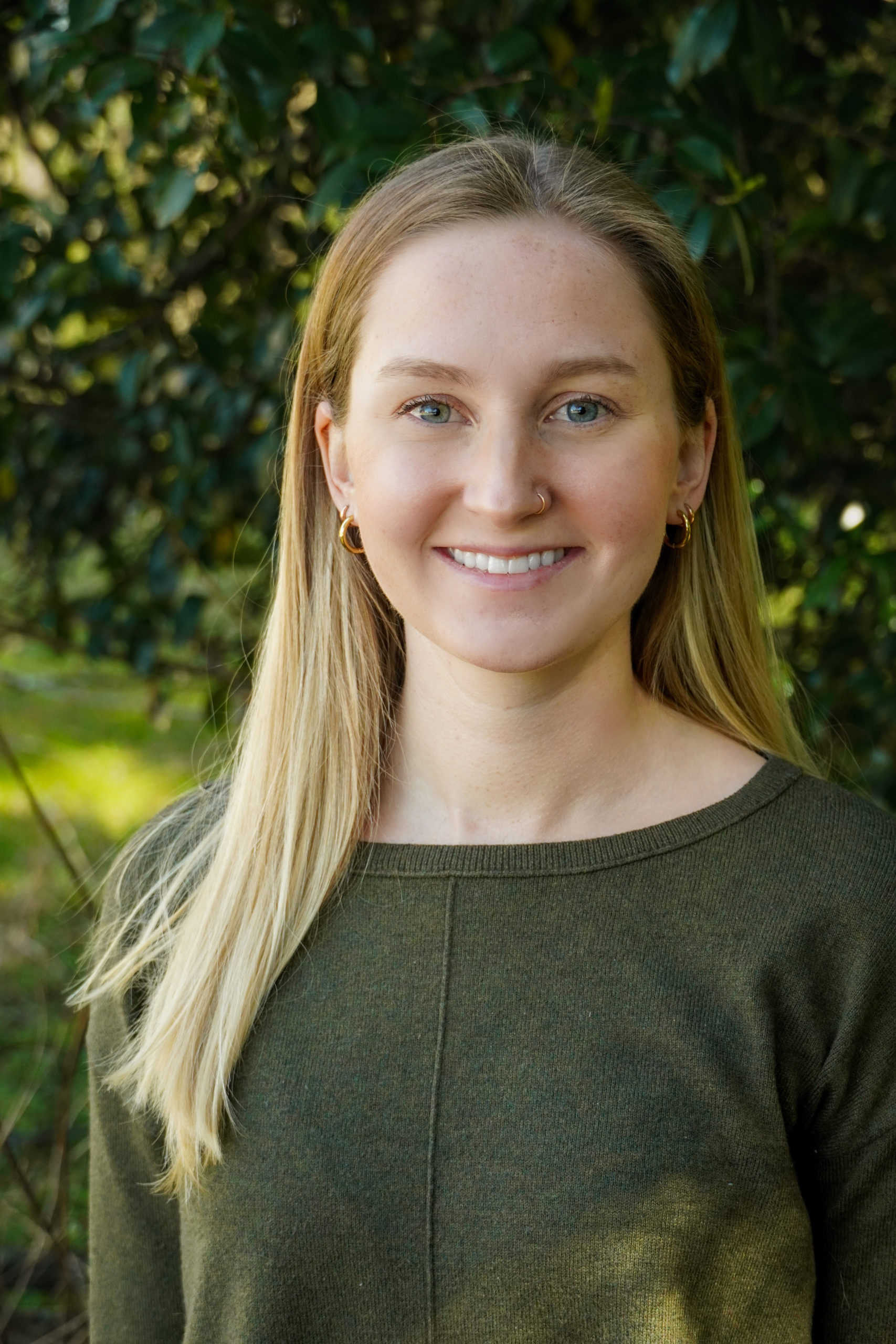
Corinne Sweeney
Hometown: Alpharetta, Georgia
Degree objective:
MS in Ecology
Other degrees:
B.S. in Biology and Ecology
Why did you choose UGA and SREL?
After I received my undergraduate degree, I was a technician for several years, learning new skills. When the opportunity was presented, I was excited to work at SREL and attend the UGA again.
What research projects are you working on?
I am looking at the plant and fungal uptake of radiocesium, a radioactive isotope produced from nuclear fission, in the floodplains of a former nuclear reactor cooling canal. Along with a team, I have collected invertebrates from the terrestrial area and fish, crayfish, and riparian spiders from the canal.
What’s your favorite thing about SREL?
I enjoy the variety of work that is being conducted. I also feel like there are new opportunities to learn
What’s your favorite memory ?
Very few things beat watching baby alligators hatch or pulling handfuls of migrating salamanders out of pitfall traps.
What is an interesting fact about you?
I worked for a small zoo after I earned my undergraduate degree. I had the opportunity to play with wolves, hand feed swamp wallabies, and wrangle cattle daily.
What are your plans after graduation?
I was accepted into a Ph.D. program at the University of Missouri, where I will study the effects of neonicotinoids, an agricultural insecticide, on aquatic macroinvertebrates
What advice would you give to an aspiring graduate student who is interested in ecology?
Apply for as many opportunities as possible, even if you do not think you are qualified. It can be competitive, but you should get your name out there.
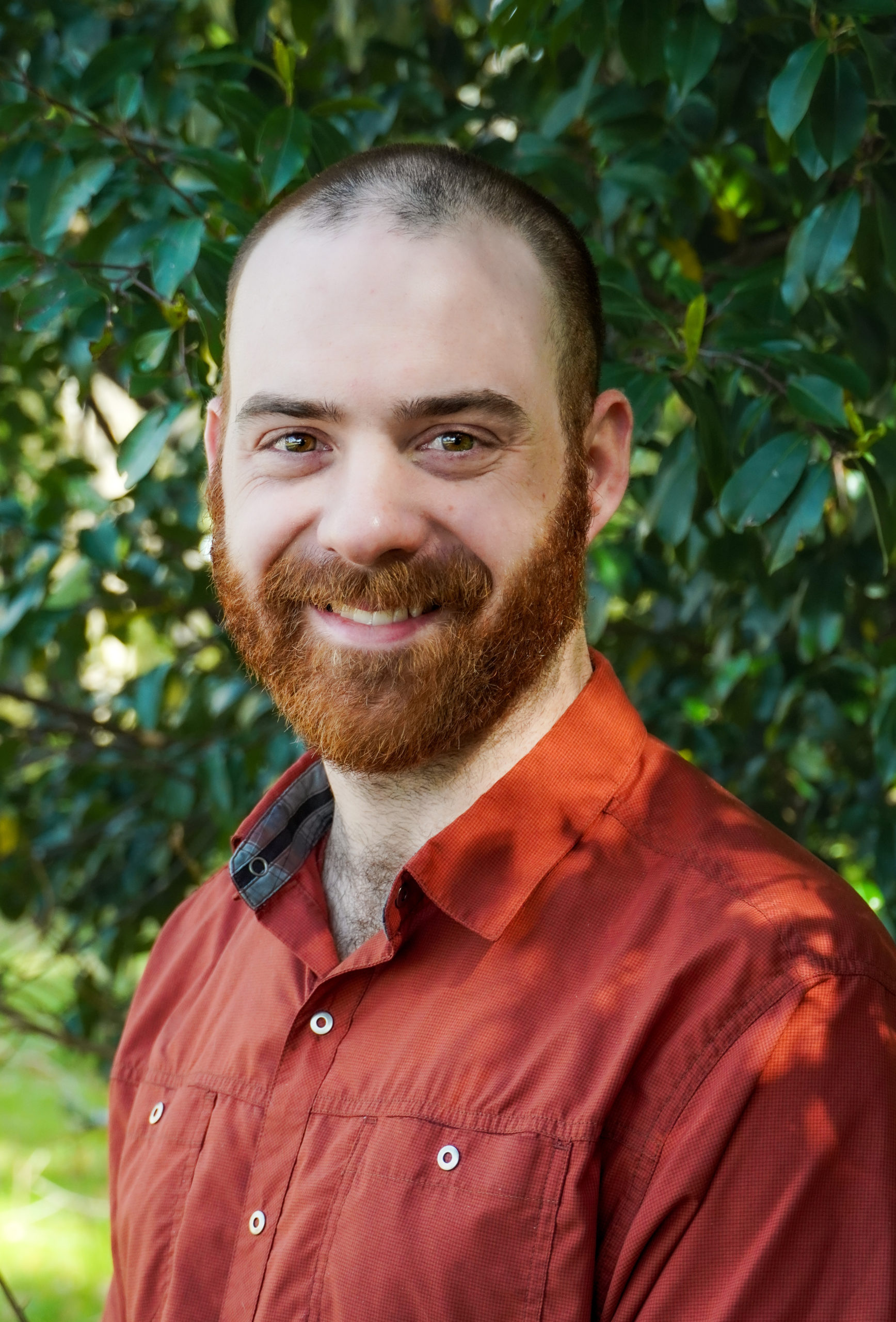
Chuck Taylor
Hometown: Frisco, Texas
Degree objective:
MS in Natural Resources
Expected graduation: December 2023
Other degrees:
B.S. in Wildlife Biology
Why did you choose UGA and SREL?
I chose SREL and Dr. Beasley’s lab because I was very interested in researching invasive wild pigs and learning about more efficient and effective ways to manage the species. SREL and Dr. Beasley are involved in some of the most innovative and extensive research involving wild pigs, which piqued my interest. After hearing how passionate he was on the subject, I knew SREL was the right place for me.
What research projects are you working on?
I am evaluating the robustness of different models in their ability to estimate wild pig abundance. In addition, I am collecting data on different common trap types used for wild pigs and evaluating their overall effectiveness.
What’s your favorite thing about SREL?
I love the family atmosphere at SREL. From the beginning, everyone has been so nice and welcoming. The faculty and students are eager to help with questions, or serve as a sounding board. You have plenty opportunities to chat and bounce ideas off them.
What’s your favorite memory ?
I enjoy spending time in the field. From finding a well-in-tact whitetail buck deadhead to seeing my first alligator in the wild, I have had some exciting moments in the field.
What is an interesting fact about you?
I am a huge baseball nerd. When I was born, I came home from the hospital decked out in full Texas Rangers gear. Of the 28 years I have been alive, I have probably been to Opening Day 20 or so times.
What are your plans after graduation?
I plan to find a full-time biologist position with either a state or federal agency. Most likely, I will work as management biologist, dealing with game species management or human-wildlife conflict.
What advice would you give to an aspiring graduate student who is interested in ecology?
Develop, grow, and maintain relationships you make in your professional/educational career. Relationships and networking are everything in the real world; you never know where you will end up.
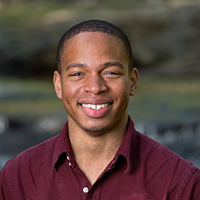
Denzell Cross
Hometown: Virginia Beach, Va.
Degree objective:
Ph.D. in Ecology and Integrative Conservation (ICON)
Expected graduation: December 2023
Other degrees:
B.S. in Biology
Why did you choose UGA and SREL?
I chose UGA mainly for the quality of research in freshwater ecology that’s conducted here. Before applying for graduate school, I was a lab and field technician at the Jones Ecological Research Center. Through that position, I was able to work with many students from UGA. Thanks to the breadth of their research projects, I gained a lot of experience working with a wide variety of organisms across diverse habitats.
What research projects are you working on?
I am working on understanding the long-term and historical impacts of urban development in stream ecosystems in metro Atlanta. I am sampling several urban stream sites that were sampled for aquatic insects in the mid-1970s and early 2000s. The data will provide a more than 40-year time comparison of how these invertebrate communities have shifted as a result of the changes that have occurred around them.
How does your research connect to SREL?
It is an advantage studying under Krista Capps, who is a faculty member at the SREL and the Odum School of Ecology. SREL is known for its extensive research evaluating environmental impacts to fresh water systems, which is very relevant to my research.
What’s your favorite thing about the Odum School?
I enjoy the community that is fostered through Odum. Everyone I have met has been incredibly friendly and the social events held in the department throughout the school year have made my experience as a student very enjoyable.
What’s your favorite memory ?
I really enjoyed the 50/10 reunion celebration that the department hosted during my first year as a student. It was a cool experience meeting the Odum alumni, hearing stories about their graduate school years, and learning how they attained their current positions. It reinforced a sense of community that the ecology department has been great at sustaining. Seeing former students who matriculated through the program also helped put things in perspective for those of us who are still here.
What are your plans after graduation?
After graduation, I would like to work for a federal agency and assist with large-scale, long-term research projects centered on urban streams. Urban streams continue to be a focus of many long-term monitoring programs. There are programs like the Urban Waters Federal Partnership through the EPA, and the National Water Quality Assessment Program through the U.S. Geological Survey, known as USGS. It would be great to have an opportunity to be a part of those efforts, especially in the southeastern U.S., since I have been working in these streams for nearly a decade.
What advice would you give to an aspiring graduate student who is interested in ecology?
Remember the reason(s) that you became interested in the field and trust the process. You don’t have to have everything figured out when you start. There is a lot more to the field, including areas that might be unknown to you that could be of interest, such as outreach, education, agency work, industry, non-profits, and academia. You will learn about these areas while you’re in school. My aspirations and perspective as far as how I would like to contribute to the field have changed since I started school. I am grateful for the people and opportunities that brought that change about.
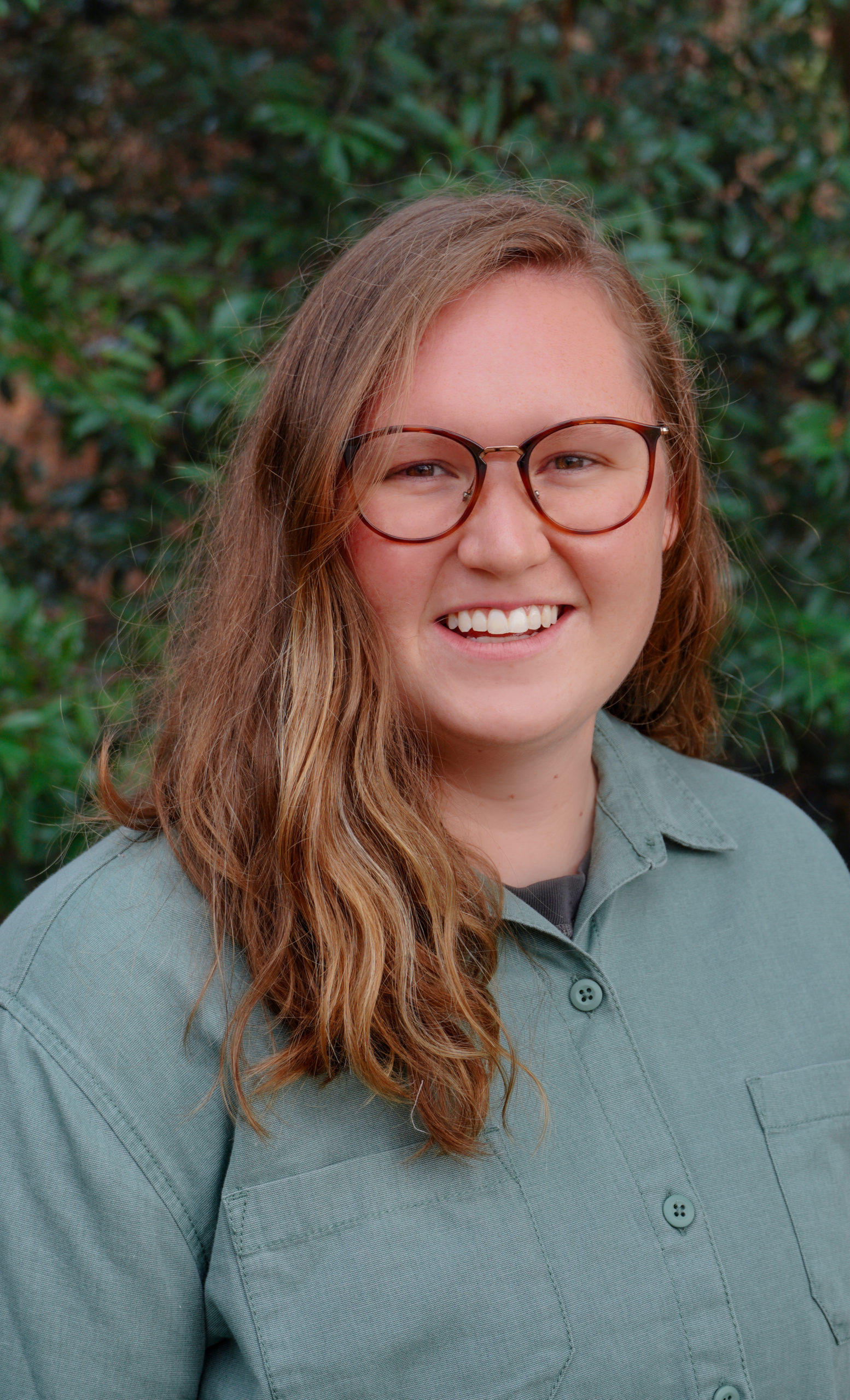
Kiersten Nelson
Hometown: Zionville, Indiana
Degree objective:
Ph.D. in Ecology
Expected graduation: May 2026
Other degrees:
B.S. in Ecology, Evolution, and Environmental Biology
Why did you choose SREL?
I chose SREL because I was interested in working with my advisor, Dr. Stacey Lance. When I first visited SREL, all the research possibilities captured my interest, both at the lab and across SRS. I enjoy that the ecology lab is its own research campus. I can conduct mesocosm experiments and study the natural environment across SRS.
What research projects are you working on?
I am working on a project to advance understanding of the endangered Carolina gopher frog and to improve current conservation strategies. SRS is home to one of the last remaining populations of the gopher frog in South Carolina. We know very little about gopher frog biology and the habitat required to support a gopher frog population. I am working to better understand this species-habitat relationship on the SRS and across its native range. I am also collaborating with other students in my lab and other head-starting (raising a species in captivity until it’s large enough to survive) facilities to improve the current head-starting techniques and to further our understanding of the health of the captive reared gopher frogs.
What’s your favorite thing about SREL?
The collaborative environment is something I enjoy. I like how students share their knowledge and help each other. I appreciate being surrounded by students from a broad range of scientific backgrounds and learning from them.
What’s your favorite memory at SREL so far?
My favorite memories involve finding herps on site. I love being involved in egg mass surveys for the gopher frog. It was also exciting to help David Scott collect and count marbled salamanders at the drift fence around Rainbow Bay as a part of the longest running amphibian monitoring project in the world (Guinness World Record). It was so amazing to find hundreds of salamanders in a single bucket! Also, the baby alligators from the Parrot Lab are very cute.
What are your plans after graduation?
Career-wise, I want to work on improving current conservation techniques and efforts with an non-government or a government agency. Personally, I also want to travel and spend more time with my friends and family.
What advice would you give to an aspiring graduate student?
Make sure you want to pursue an advanced degree in research. There must be a scientific question (or questions) that motivates and drives you. Even if the question changes throughout your graduate career, you need to have a solid idea of your interests and how to design experiments to investigate your questions. Also, while interviewing for graduate positions, ask a lot of questions! Make sure you are aware and knowledgeable of the university and the lab. The lab and advisor are the most important aspect of graduate school. Ask current students about the advisor, their expectations, and the culture. Having a positive relationship with your advisor is so important. It can make or break your grad school experience.
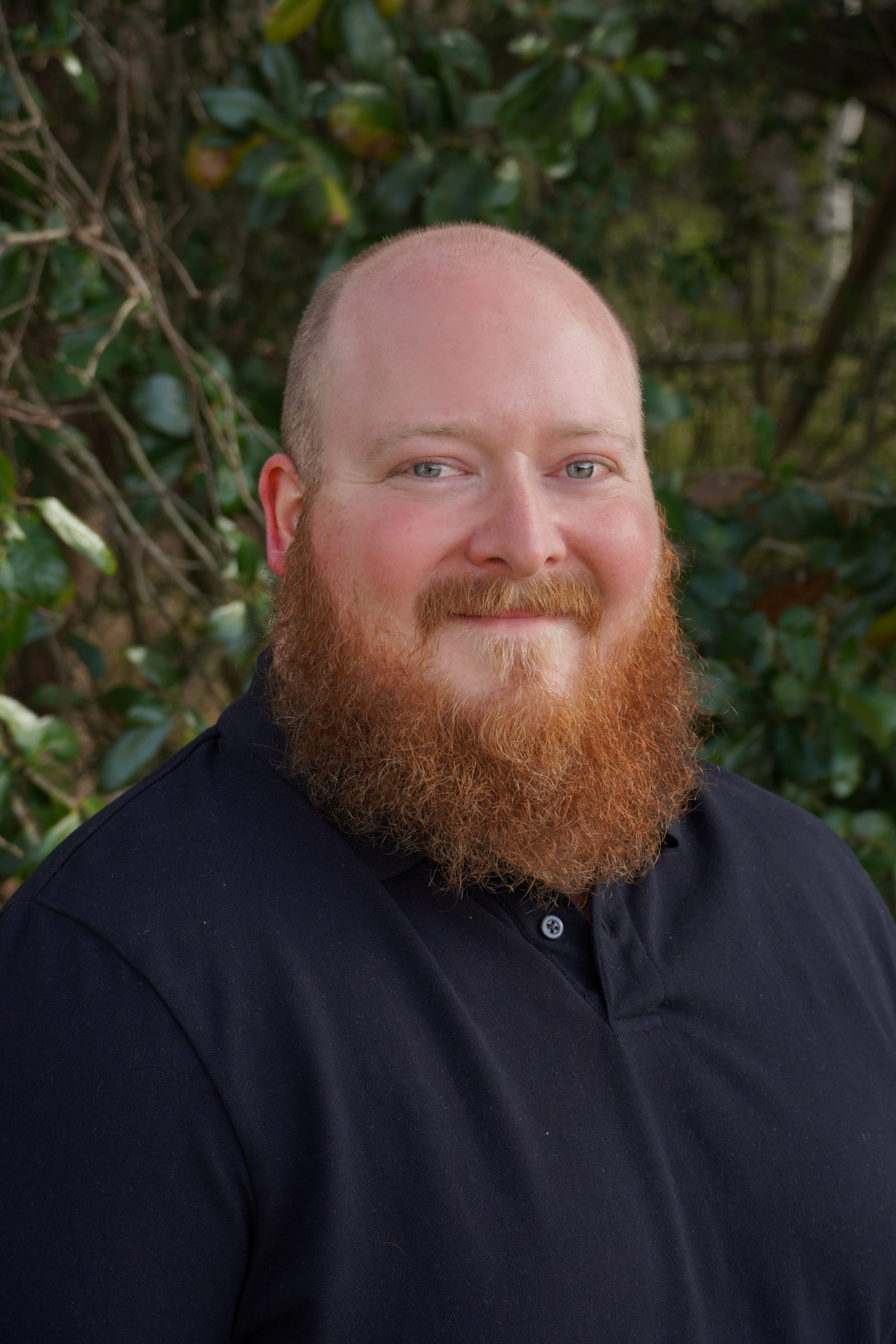
Joseph Treichler
Hometown: North Hampton, PA
Degree objective:
M.S. In Forestry and Natural Resources
Expected graduation: May 2022
Other degrees:
B.S. in Wildlife Fisheries in Science
Why did you choose SREL?
Dr. Jim Beasley had an opening to research wild pigs with a focus on their impacts and management, which piqued my interest. SREL’s unique dynamic of hands-on experience and the numerous opportunities to help/collaborate with others on their projects, and the range of those projects at the lab also attracted me.
What research projects are you working on?
My current research is a part of the Feral Swine Eradication and Control Pilot Program (FSCP) on how implemented control measures affect the wild pig population, crop damage, and rooting damage done to native habitat in South Carolina.
What’s your favorite thing about SREL?
My favorite things are how diverse the research is and how close knit the students are.
What’s your favorite memory at SREL so far?
Attending Dr. Beasley’s Maymester course
What are your plans after graduation?
My post-graduation plan is to move back to Pennsylvania and hopefully work as a wildlife biologist.
What advice would you give to an aspiring graduate student?
Find a subject that interests you enough, but be flexible in your choices. 2. Find a work-life balance that works and keep it at all costs. 3. Start your writing and analysis early, and do bits and pieces as you can instead of waiting to do everything at the end.
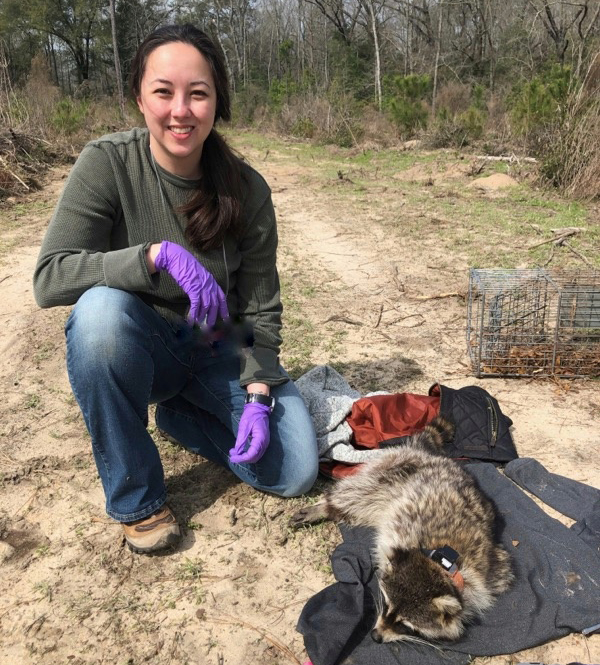
Chelsea Titus
Hometown: Waialua, Hawai’i
Degree objective:
Wildlife Ecology and Management
Expected graduation: December 2021
Other degrees:
A.A. in Liberal Arts, B.S. in Biological Sciences
Why did you choose SREL?
I chose SREL because I wanted to work with my current advisor, Dr. Beasley. The Beasley Lab works on a plethora of organisms and a diverse array of research.
What research projects are you working on?
I am currently working on two projects that use unique, single DNA markers to study wild pigs. In the first project, I use the markers to describe the genetic relatedness within wild pig social groups. For the second project, I use markers and age to determine the influence of ancestry and age on the number of litters male wild pigs will produce.
What’s your favorite thing about SREL?
I enjoy all the people at the lab. The people at SREL conduct diverse research and they come from diverse backgrounds with a range of experiences.
What’s your favorite memory at SREL so far?
My favorite memory so far is taking part in Dr. Beasley’s wildlife techniques course. I got to meet my fellow Warnellians, see the diverse habitats on the Savannah River Site, and use skills that will be applicable in my future career path.
What’s an interesting fact about you?
Most people think my work history is interesting. Before I became a scientist, I was both a preschool and dance teacher, promo model, and a cocktail waitress.
What are your plans after graduation?
Professionally, I would love to work as a federal wildlife biologist. Personally, I hope to get back to traveling, embroidery, dancing, and other hobbies that I placed on hold to focus on completing my education.
What advice would you give to an aspiring graduate student?
Have comrades to celebrate the good times and commiserate the rough times. So, get to know your fellow baby scientists! Also be prepared. Life can throw a wrench, like the global pandemic, in all the best laid plans.
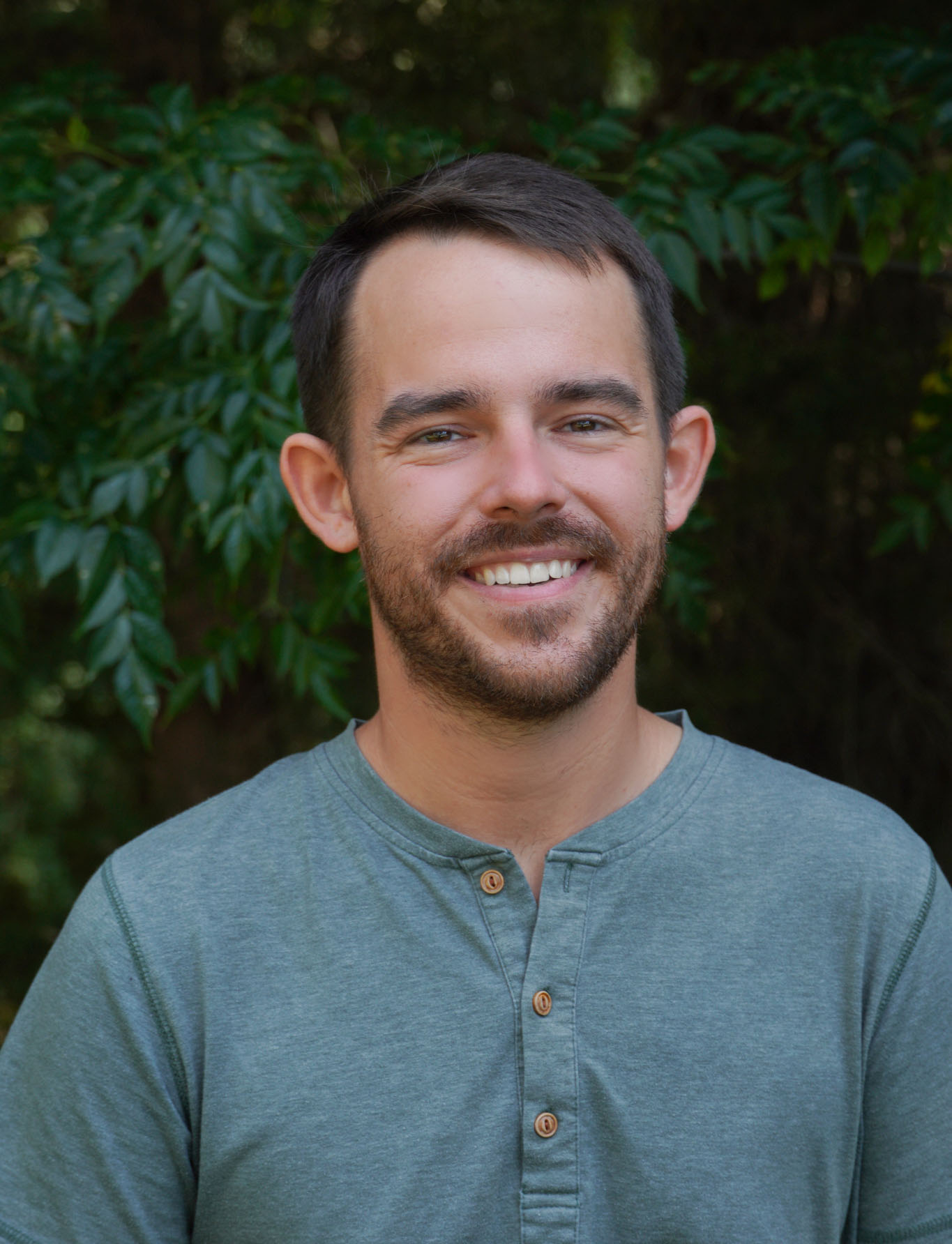
Chris Leaphart
Hometown: Leesville, South Carolina
Degree objective:
A doctorate in Forestry and Natural Resources
Expected graduation: August 2022
Other degrees:
B.S. in Biology
M.S. in Forestry and Natural Resources
Why did you choose SREL?
I joined SREL in May 2014 as a summer intern and quickly recognized the opportunities available here. I was really interested in the research Dr. James Beasley was doing and decided to go for my master‘s at UGA. After finishing my master’s, I was able to secure a research grant to pursue a Ph.D. and fund my dream project.
What research projects are you working on?
My research focuses on methylmercury (formed when inorganic mercury combines with bacteria) exposure and accumulation in waterfowl and how exposure during embryonic development can affect duckling health (hormones, immune function, body condition, etc.) and survival.
What’s your favorite thing about SREL?
Apart from my research, my favorite thing is working with my colleagues. SREL attracts a diverse group of young scientists from all over. Everyone has his/her own research interests and set of skills. Being able to help and learn from other students around me has given me many great opportunities and fond memories. Each individual has his/her own research interests and skills. Being able to assist and learn from other students has provided great opportunities and fond memories.
What’s your favorite memory at SREL so far?
My favorite memory at SREL is going out in a boat at night (with a team) to deploy newly hatched wood ducklings with a foster hen to monitor duckling survival. We hatched ducklings that we collected from the field and attached tiny radio-transmitters to their backs. We released them in a nest box with a foster wood duck hen on a pond on the Savannah River Site. Then we tracked them daily. I really enjoyed spending days and nights on the water.
What are your plans after graduation?
My goal is to become a faculty member at a university. I enjoy conducting research, but I have a passion for teaching and mentoring students. I started this journey to secure a career that would allow me to give back to the scientific community and help others achieve their life goals and aspirations.
What advice would you give to an aspiring graduate student?
Pursue the research that keeps you awake at night (in a good way).
Seek out opportunities to advance your career and future.
Make life-long connections with your colleagues.
Pursuing a graduate degree while addressing life’s challenges can be emotionally, mentally, and physically difficult at times, so don’t be afraid or ashamed to reach out for help when you need it.
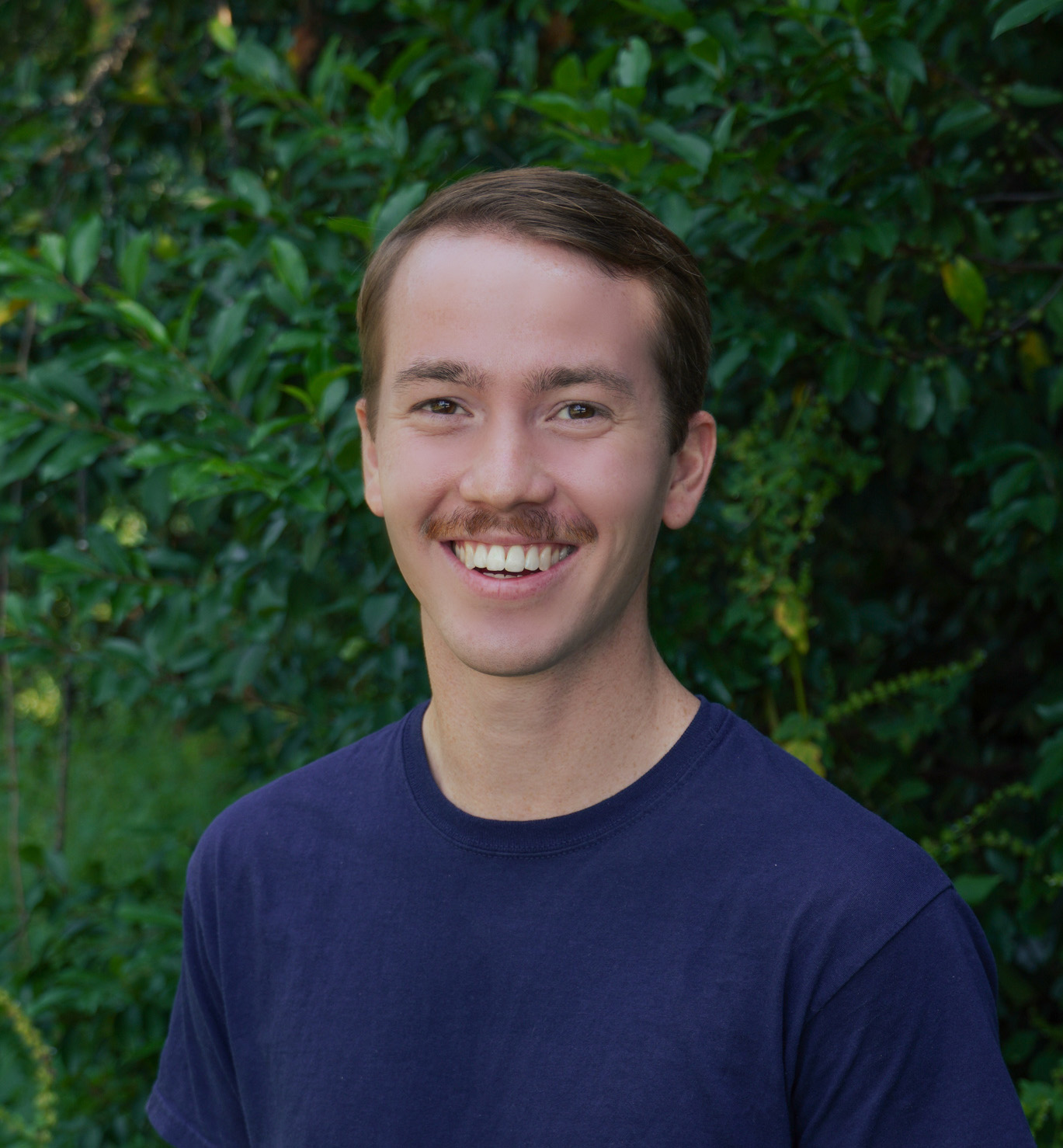
Adam McFall
Hometown: Aiken, South Carolina
Degree objective:
M.S. in Conservation Ecology and Sustainable Development
Expected graduation: August 2022
Other degrees:
B.S. in Biology
Why did you choose SREL?
The SREL’s outreach talks to the community largely motivated my interest in reptiles and amphibians and from my childhood adventures “herping” near my house. As I got older, I realized my hobby could turn into a professional career. This led me to pursue a degree in biology. During my senior year, I did a capstone project at the SREL because the university I was attending had a collaboration with the lab. After graduating, I worked as a technician for Dr. Stacey Lance and had a great experience. I enjoyed it so much that I applied to be a graduate student in her lab. Ultimately, my choice was based on the research I could do here, such as working with at-risk amphibians and asking important questions in regard to development, behavior, and physiology. It doesn’t hurt that I can also give back to my hometown.
What research projects are you working on?
I am investigating ways to improve the current management strategies for the at-risk gopher frog. Using a strategy called “head starting, eggs are taken from wild egg masses and reared in captivity to metamorphosis, then they are released back at their natal ponds to give them a “head start” on life. I’m researching certain aspects of the “head starting” protocol to improve the survival of gopher frogs after re-release.
What’s your favorite thing about SREL?
The space. Lab space, office space, and the massive landscape where you can conduct research (310-square miles on the U.S. Department of Energy’s Savannah River Site).
What’s your favorite memory at SREL so far?
Helping David Scott collect hundreds of marbled salamanders in drift fence buckets around Rainbow Bay for the long-term amphibian project, also known as the longest-daily monitored study in the world. It has a Guinness World Record.
What are your plans after graduation?
My goal is to work as a program coordinator for the Partners for Fish & Wildlife Program with the U.S. Fish & Wildlife Service. This position would take some working up to, so after graduation, I’m hoping to work as a wildlife biologist for the federal government.
What advice would you give to an aspiring graduate student?
Be humble and confident. Don’t be afraid to go for your dream and see what happens. The worst thing that happens is you get rejected. And that just helps you grow in maturity. It’s a win-win.
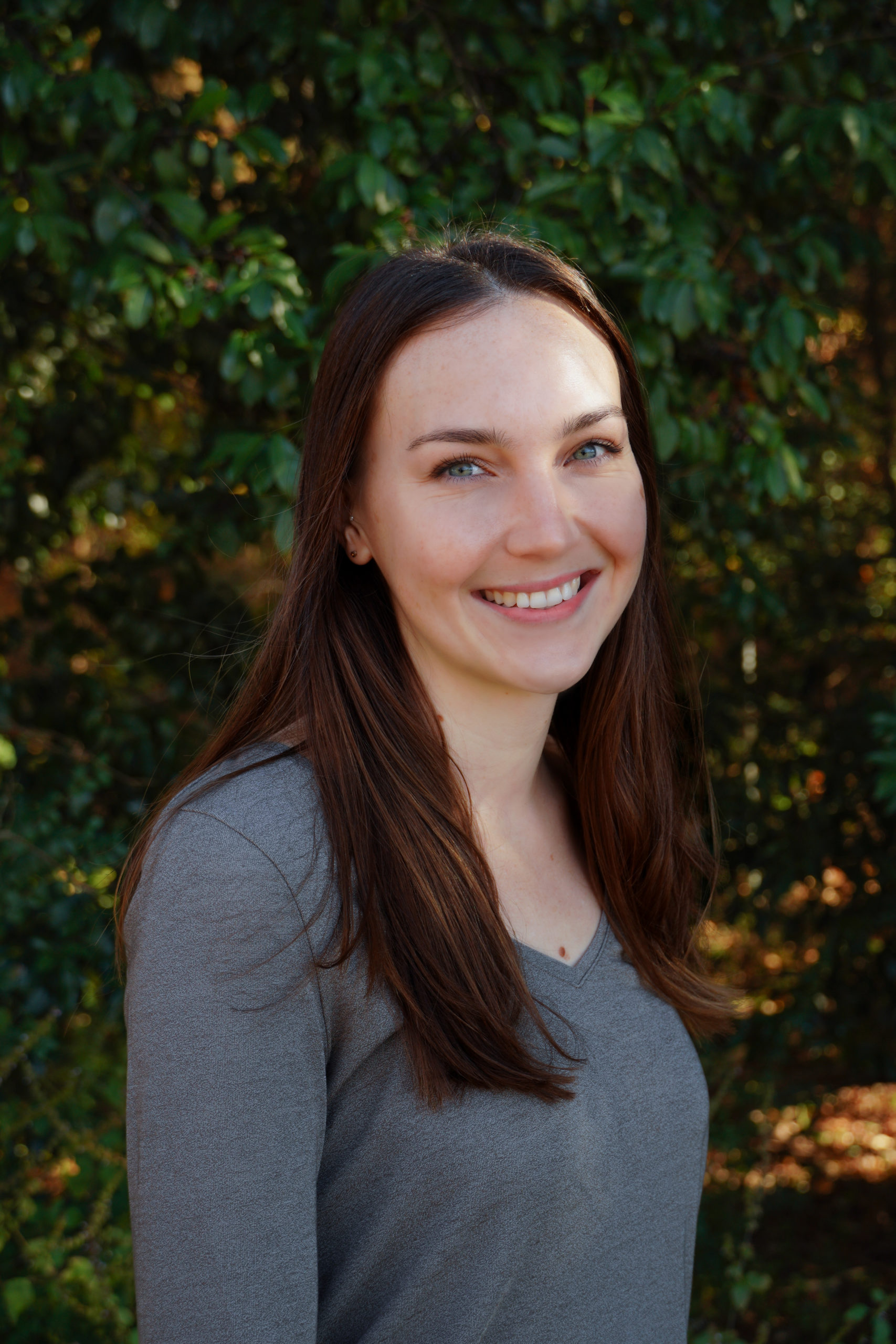
Miranda Butler-Verde
Hometown: Las Cruces, New Mexico
Degree objective:
M.S. in Forestry and Natural Resources
Expected graduation: May 2022
Other degrees:
B.S. in Biology
Why did you choose SREL?
I chose SREL because the professors and professionals here, like Dr. Beasley, conduct the leading scavenging ecology research. I wanted to be a part of the growing field of carrion ecology.
What research projects are you working on?
I am currently investigating differences in scavenging rates and scavenger community composition of higher (carnivore/scavenger) and lower (herbivore) trophic level carrion. Specifically, I am conducting two field studies: one with mammal and the other with avian carrion. I set up remote cameras at carcass trials to document species visiting carcasses and scavenging. Then I assess scavenging aspects from the image data.
What’s your favorite thing about SREL?
My favorite thing is the opportunity to conduct research I am passionate about. It has also been exciting exploring a new area, since I grew up in the Southwest.
What’s your favorite memory at SREL so far?
My favorite memories are from game nights. We play Salem a lot. I promise I NEVER get the witch card, yet they always think I am the witch.
What are your plans after graduation?
I plan to move back to the Southwest to be closer to family and friends. My goal is to obtain wildlife biologist position in New Mexico.
What advice would you give to an aspiring graduate student?
My advice is to volunteer every chance you get; even if it is doing not so glamorous work. Also, I recommend reaching out to people you want to work with. Networking is key.
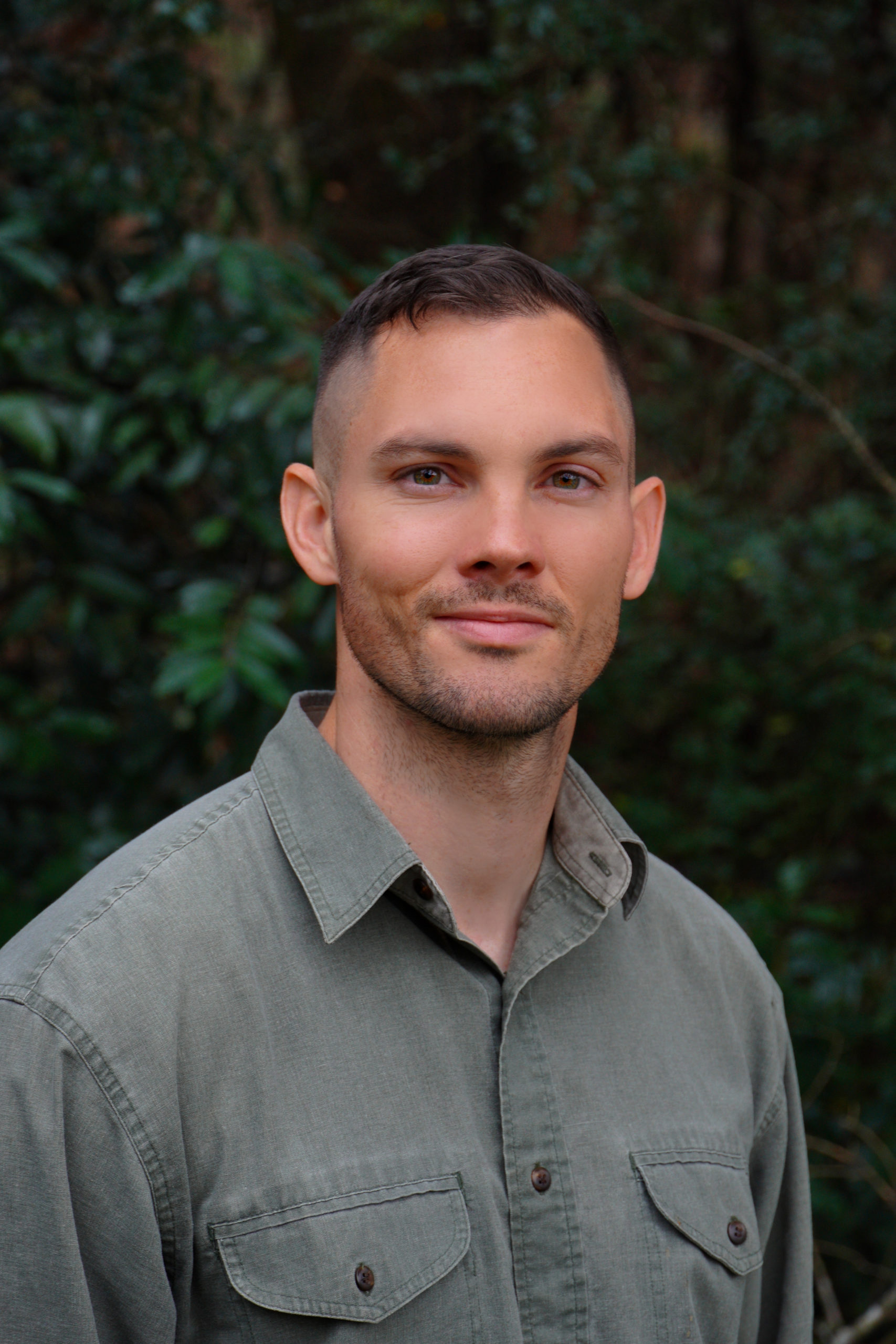
Tucker Stonecypher
Hometown: Eastman, Georgia
Degree objective:
M.S. in Conservation Ecology and Sustainable Development
Expected graduation: May 2022
Other degrees:
B.S. in Natural Resources Management
Why did you choose SREL?
SREL offered me the opportunity to design and conduct original research in two areas I am passionate about, wetland restoration and amphibian conservation. Both Odum and SREL have stellar reputations in the amphibian conservation world. I knew that SREL would be the best place for me to gain valuable knowledge and meet some of the best ecologists in the Southeast.
What research projects are you working on?
I am currently testing ephemeral wetland restoration techniques that actively promote desirable wetland vegetation for the endangered Carolina gopher frog. I am also involved in a project that focuses on improving head-starting (raising an animal in captivity and releasing it into protected habitat) to increase juvenile survival of the Carolina gopher frog.
What’s your favorite thing about SREL?
I really enjoy the diverse areas of expertise at SREL. Ecology is a broad field, and you can encounter areas of research that you have little knowledge of. Having people available with a wide variety of skills makes for exciting research opportunities.
What’s your favorite memory at SREL so far?
My favorite memory is the emotional rush that came with finding egg masses of the Carolina gopher frog. It was exciting to find eggs of this declining species at SREL.
What are your plans after graduation?
I hope to work at a state or federal agency in the Southeast and ideally, with a focus on wetland or amphibian conservation.
What advice would you give to an aspiring graduate student?
Don’t accept a position simply because you need to advance your career. Figure out what you’re passionate about before you apply for a position. You have to be passionate about this field to be successful. If you don’t enjoy what you’re studying, then you will have a rough time in grad school. If you don’t know what your interests are yet, that’s ok. Work a few entry-level jobs first to get a feel. There is no such thing as being “behind” in your career or education. People take different paths, so don’t feel pressured to start the next chapter.
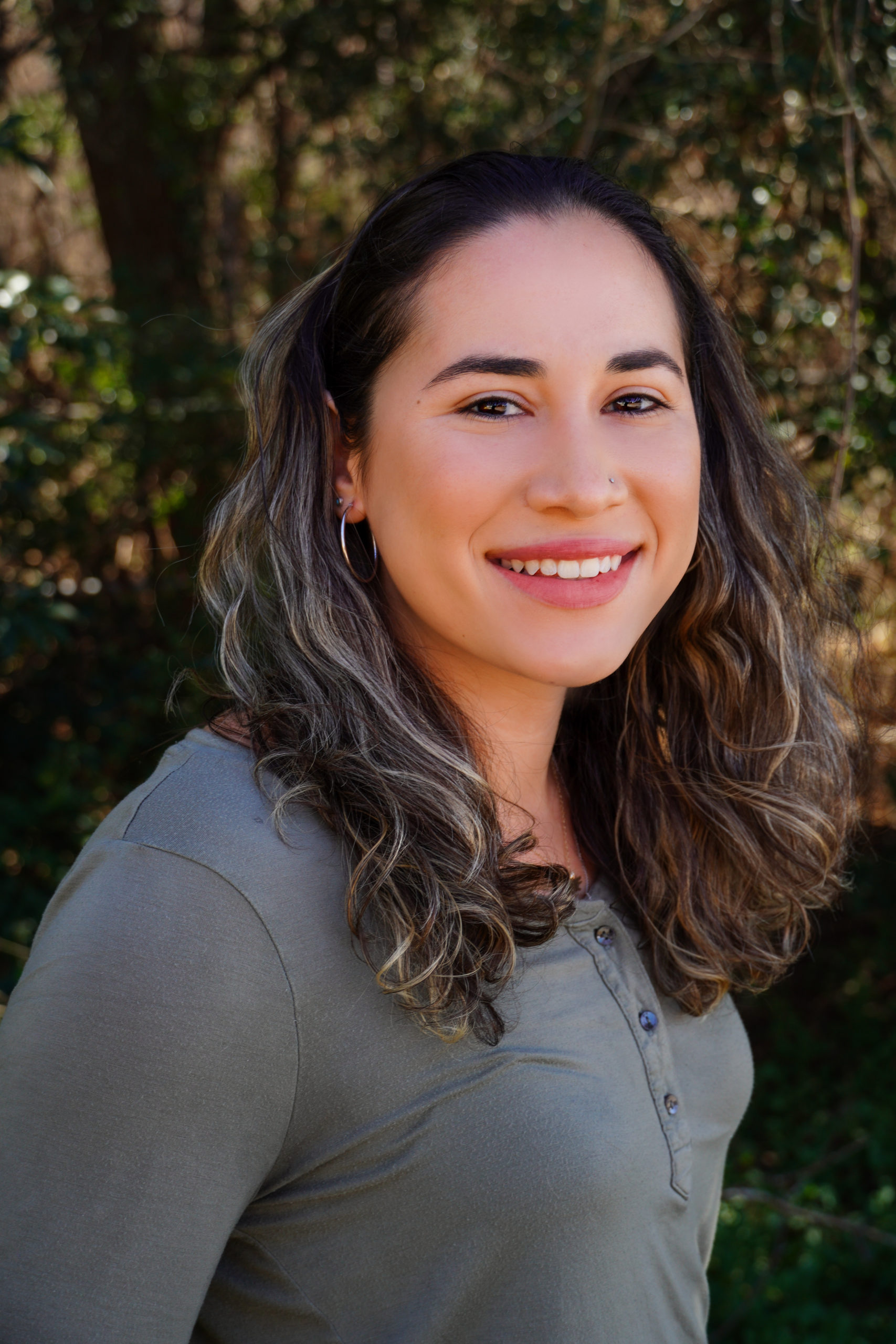
Laura Kojima
Hometown: San Diego, California
Degree objective:
M.S. in Conservation Ecology and Sustainable Development
Expected graduation: December 2022
Other degrees:
B.S. in Wildlife, Fish, and Conservation Biology
Why did you choose SREL?
I chose SREL for its esteemed education in ecology and to work on the project of my dreams! I never thought I would work with such a cool reptile. I love that my project combines alligator ecology, toxicology, and the potential impact that the alligators’ wellbeing has on human health.
What research projects are you working on?
I am currently researching alligator ecotoxicology, specifically the risk associated with consuming contaminated alligator meat from the Savannah River area and how the contaminants influence alligator movement ecology.
What’s your favorite thing about SREL?
My favorite thing is the privacy I have when doing fieldwork on the Savannah River Site, a limited access facility. I love being able to go conduct my fieldwork and feel secure. It’s also a plus to have the lakes to myself!
What’s your favorite memory at SREL so far?
Getting six alligators in one trapping! It set our team’s record for alligator trapping. (I had set ten traps the previous evening). We also had a few recaptures that I discovered were more than 20 years old, which was pretty neat.
What are your plans after graduation?
I hope to work for the government doing project management in herpetological conservation-based research projects, and possibly, a Ph.D.
What advice would you give to an aspiring graduate student?
Put yourself out there. Who you know and how you network really helps you make it in this field, and it opens up the door to amazing opportunities.
